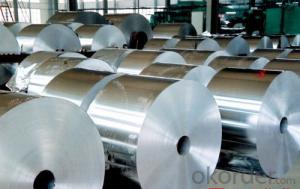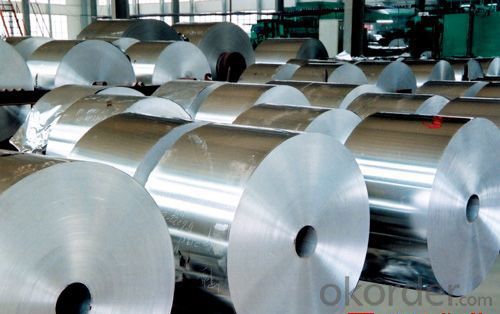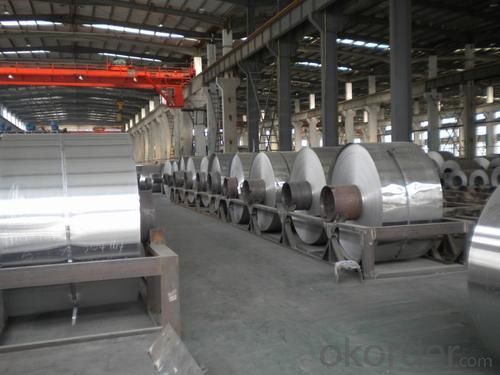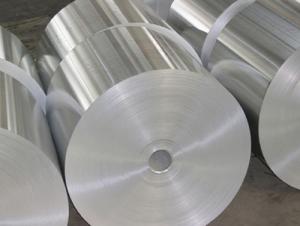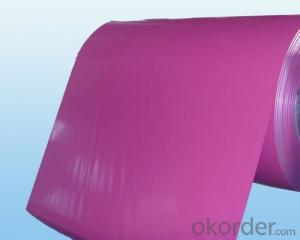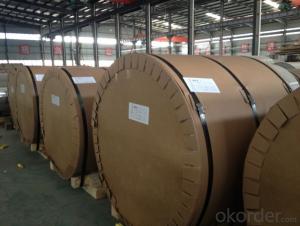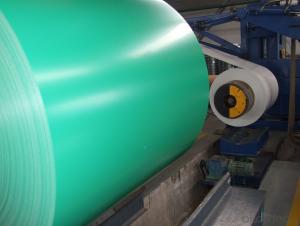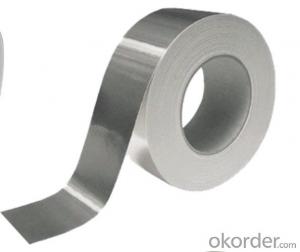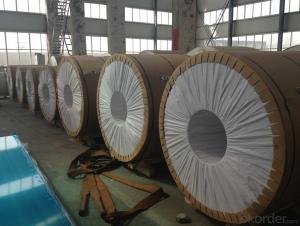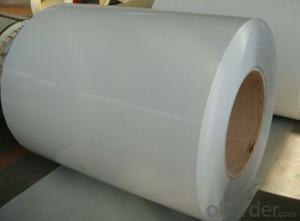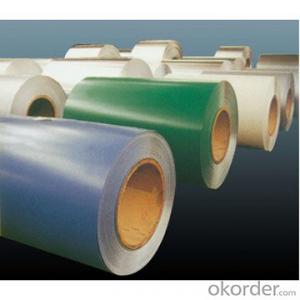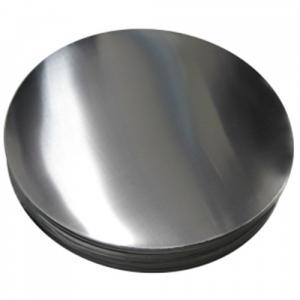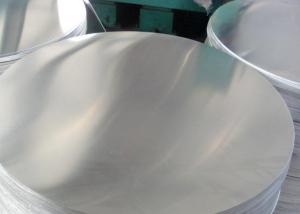Aluminum Prepainted Aluminum Coil for Manufacturing ACP
- Loading Port:
- Shanghai
- Payment Terms:
- TT OR LC
- Min Order Qty:
- 5 m.t.
- Supply Capability:
- 100000 m.t./month
OKorder Service Pledge
Quality Product, Order Online Tracking, Timely Delivery
OKorder Financial Service
Credit Rating, Credit Services, Credit Purchasing
You Might Also Like
Specification
Grade:
1000 Series
Surface Treatment:
Composited
Shape:
Angle
Temper:
T3-T8
Application:
Decorations
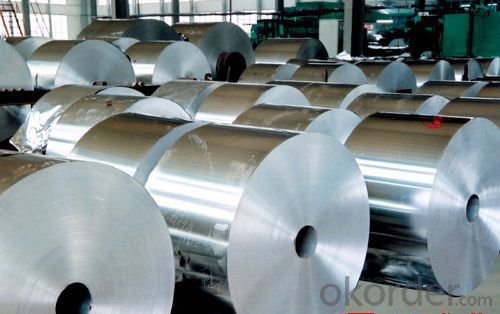
| Product | color coated aluminium coil | |||||
| Commodity | Alloy | Temper | Gauge (mm) | Width(mm) | Length (mm) | Standard |
| Al.sheets for cladding wall/curtain wall | 1XXX 3XXX 5XXX | HX4 | 0.2-12 | 1630 | 1000~ 6000 | GB/T3880 GB/T3199 YS/TS429.1 |
| Al.alloy sheet/strip | 5052 | H1x H2x H3x | 0.2-20 | 1630 | Strip/ sheet | GB/T8544 |
| Al.strip for composite panel | 1XXX 3XXX 5XXX 8XXX | H1x H2x H3x | 0.2-20 | 1630 | Strip | YS/T432 YS/T434 |
| Foil stock | 1145 1235 1200 8XXX | H14 H24 | 0.01- 0.6 | 1630 | Strip | YS/T457 |
| Commercial Sheet/strip | 1XXX 3XXX 5XXX | 0 H1x H2x H3x | 0.2-20 | 1630 | Strip/ sheet | GB/T3880 GB/T3199 YS/T490 YS/T431 |
| Remark:Besides the stipulations in the above table,the specific technical agreement,if any,can be signed by the seller and buyer after mutual discussion. | ||||||
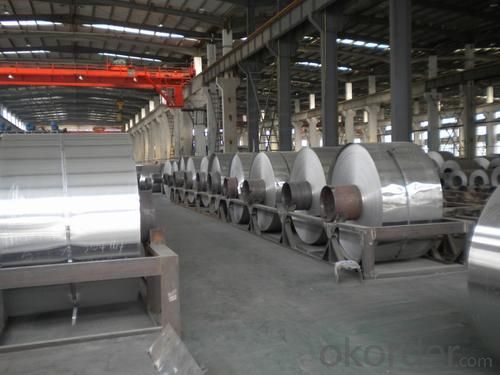
Packaging & Delivery
| Packaging Details: | Sea worthy Packing, Pallet |
| Delivery Detail: | 15 - 30days |
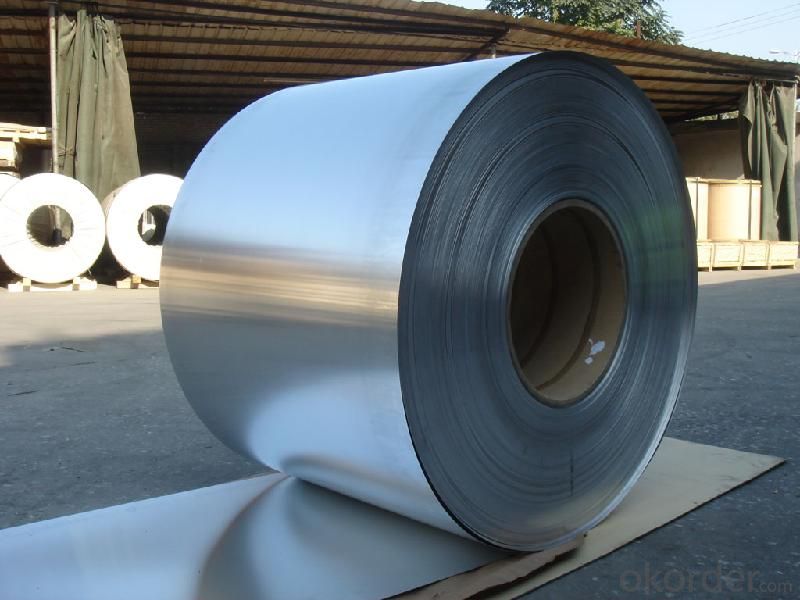
- Q: This question asks about the impact of aluminum usage on the global economy, including its role in various industries and its influence on trade and economic development.
- <p>The use of aluminum significantly affects the global economy due to its versatility and widespread application in numerous industries such as construction, automotive, aerospace, and packaging. As the third most abundant element in the Earth's crust, aluminum is a key material in modern manufacturing, contributing to economic growth through job creation and technological advancement. It also plays a crucial role in trade, with major producers like China, Russia, and Canada exporting large quantities, influencing global supply chains and trade balances. Additionally, the demand for aluminum drives exploration and investment in mining, further impacting economic development in resource-rich regions. However, the environmental and sustainability concerns associated with aluminum production, such as energy consumption and waste, also present challenges that can affect economic stability and growth.</p>
- Q: Is there a new technology available for recycling aluminum?
- <p>Yes, new technologies are being developed and implemented for recycling aluminum more efficiently. One such technology is the use of advanced sorting systems that can separate different types of metals, including aluminum, from waste streams. Additionally, there are innovations in the smelting process that reduce energy consumption and emissions. For instance, some companies are using inert anodes in the electrolytic process to produce aluminum, which can significantly lower the carbon footprint. These advancements not only make aluminum recycling more environmentally friendly but also more economically viable.</p>
- Q: Is it possible for aluminum to penetrate the skin and be absorbed into the body?
- <p>Aluminum can be absorbed through the skin, but the rate and extent of absorption are generally low. The skin acts as a barrier and only allows minimal absorption of aluminum. Most aluminum exposure comes from ingestion, not dermal absorption. The body's ability to absorb aluminum can be influenced by factors such as the form of aluminum, the condition of the skin, and the duration of exposure. However, it's important to note that aluminum is commonly found in everyday products and is generally considered safe in the amounts typically encountered.</p>
- Q: Is it possible to use pure aluminum to create tools and equipment with increased longevity?
- <p>Pure aluminum is not typically used for making tools and equipment that require durability and strength. While it is lightweight and corrosion-resistant, pure aluminum is relatively soft and lacks the strength needed for most tools and equipment. Alloys of aluminum, which combine aluminum with other elements like copper, magnesium, or silicon, are often used instead. These alloys offer improved strength, hardness, and wear resistance, making them more suitable for long-lasting tools and equipment.</p>
- Q: The question seeks to understand the steps involved in producing aluminum, from raw material extraction to the final product.
- <p>The process of aluminum production involves several key steps. Initially, bauxite, the primary aluminum ore, is mined. This ore is then crushed and washed to remove impurities. The next phase is the Bayer Process, where bauxite is dissolved in a caustic soda solution under high temperature and pressure, resulting in a solution rich in aluminum hydroxide. This solution is then seeded with aluminum hydroxide crystals, causing more crystals to form, which are then harvested. The final step is the Hall-H茅roult Process, where the aluminum oxide is dissolved in a molten cryolite bath and electrolyzed to extract pure aluminum. This process involves passing an electric current through the bath, causing aluminum ions to be reduced at the cathode, forming molten aluminum which is then tapped off for further processing or use.</p>
- Q: What are the various applications of aluminum in the construction industry?
- <p>Aluminum is widely used in construction due to its lightweight, durability, and resistance to corrosion. It is utilized in the manufacturing of window frames, doors, roofing, and facades for its strength and low maintenance requirements. Aluminum is also used in structural components such as beams and columns, and in the construction of bridges and high-rise buildings. Its malleability allows for easy shaping and forming, making it ideal for intricate designs. Additionally, aluminum's thermal conductivity and reflectivity make it suitable for energy-efficient construction.</p>
- Q: Describe the steps involved in recycling aluminum foil, including collection, sorting, processing, and manufacturing.
- <p>The process of recycling aluminum foil begins with collection, where used foil is gathered from households and businesses. It is then sorted to separate aluminum from other materials. The aluminum foil is shredded into small pieces and cleaned to remove any contaminants. This shredded material is melted in a furnace at high temperatures, turning it into molten aluminum. The molten aluminum is then cooled and rolled into sheets or ingots. Finally, these are used to manufacture new aluminum products, such as new foil, cans, or other items. This recycling process conserves resources, reduces energy consumption, and minimizes waste in landfills.</p>
- Q: This question asks about the potential health hazards associated with exposure to aluminum in a work environment.
- <p>Working with aluminum can pose certain health risks, primarily due to inhalation of aluminum dust or fumes. Chronic exposure may lead to respiratory issues such as aluminum lung disease, characterized by shortness of breath and cough. Additionally, aluminum has been linked to neurological disorders, including cognitive dysfunction and memory loss. There's also evidence suggesting a potential connection to Alzheimer's disease, though this is not conclusively proven. Skin contact with aluminum can cause irritation or allergic reactions in some individuals. It's important for workers to use proper protective equipment and follow safety guidelines to minimize these risks.</p>
- Q: This question asks to outline the various environmental effects that result from the production of aluminum.
- <p>Aluminum production has several environmental impacts. It is energy-intensive, leading to high greenhouse gas emissions, primarily CO2, contributing to climate change. The process also generates toxic byproducts such as fluorides and cyanides, which can contaminate soil and water. Biodiversity is affected due to habitat destruction from mining activities. Additionally, aluminum production consumes significant amounts of water, which can strain local water resources. The industry also contributes to air pollution through the release of particulate matter and other pollutants. Overall, aluminum production poses a significant environmental challenge that requires sustainable practices and technologies to mitigate its impacts.</p>
- Q: Explain the impact of aluminum on the transportation system when it is incorporated into automobiles.
- <p>Aluminum has a significant impact on the transportation system when used in automobiles. It is lightweight, which improves fuel efficiency by reducing the overall weight of the vehicle. This reduction in weight leads to lower emissions, as less fuel is consumed. Aluminum's durability and resistance to corrosion also contribute to the longevity of vehicles, reducing the need for frequent repairs or replacements. Additionally, aluminum's recyclability helps in reducing waste and conserving resources, which is beneficial for environmental sustainability. Overall, the use of aluminum in automobiles enhances performance, reduces environmental impact, and promotes a more sustainable transportation system.</p>
Send your message to us
Aluminum Prepainted Aluminum Coil for Manufacturing ACP
- Loading Port:
- Shanghai
- Payment Terms:
- TT OR LC
- Min Order Qty:
- 5 m.t.
- Supply Capability:
- 100000 m.t./month
OKorder Service Pledge
Quality Product, Order Online Tracking, Timely Delivery
OKorder Financial Service
Credit Rating, Credit Services, Credit Purchasing
Similar products
Hot products
Hot Searches
Related keywords
